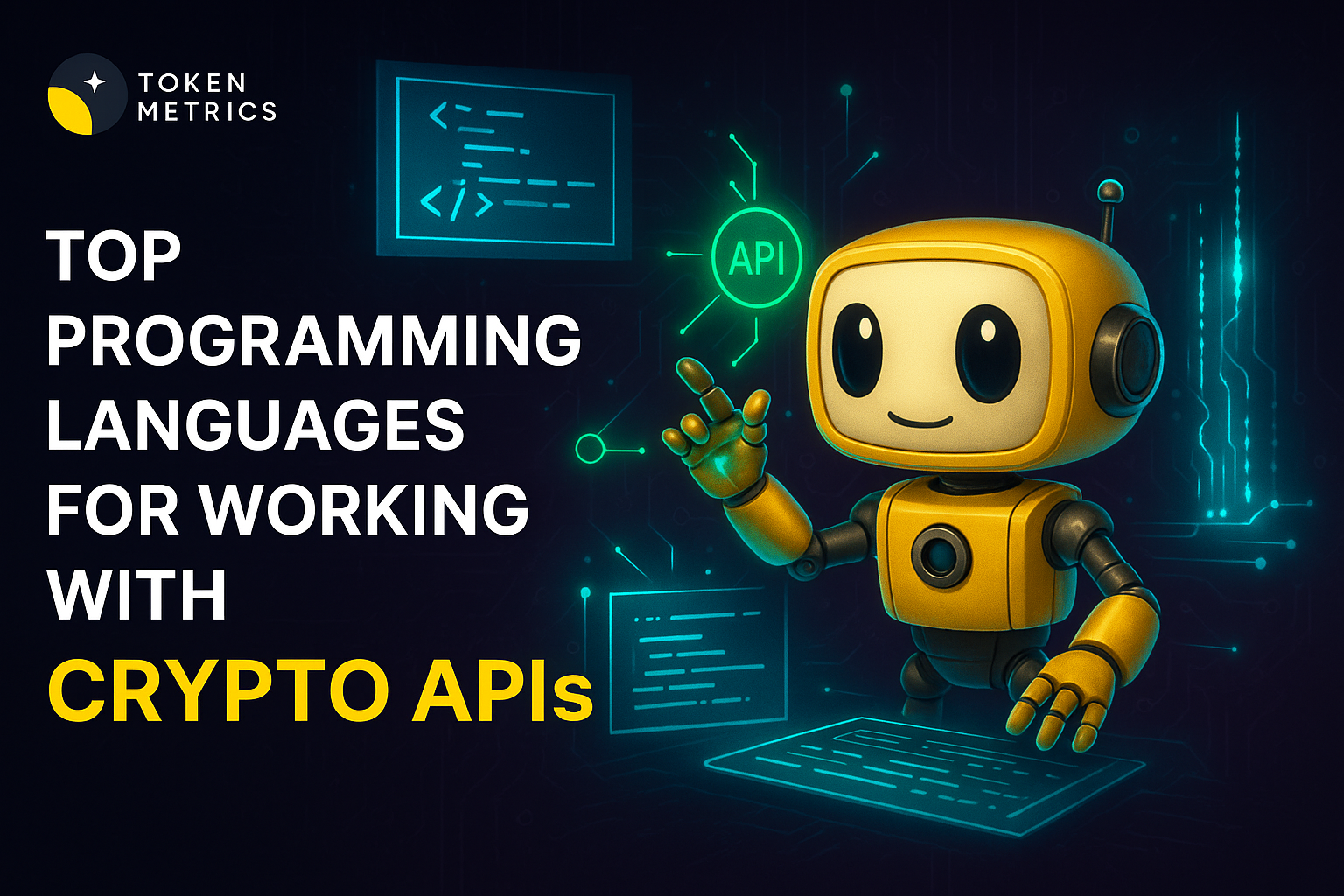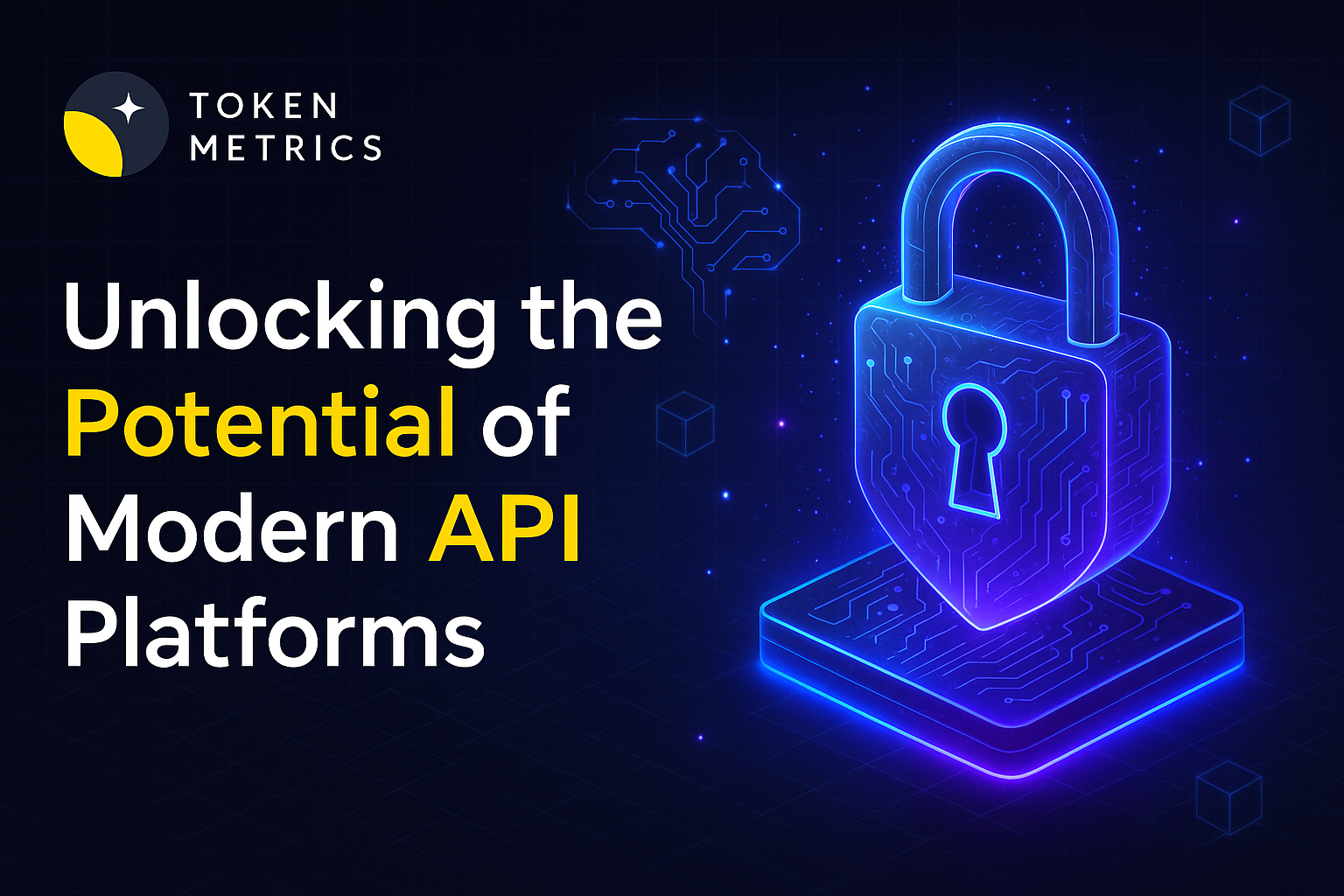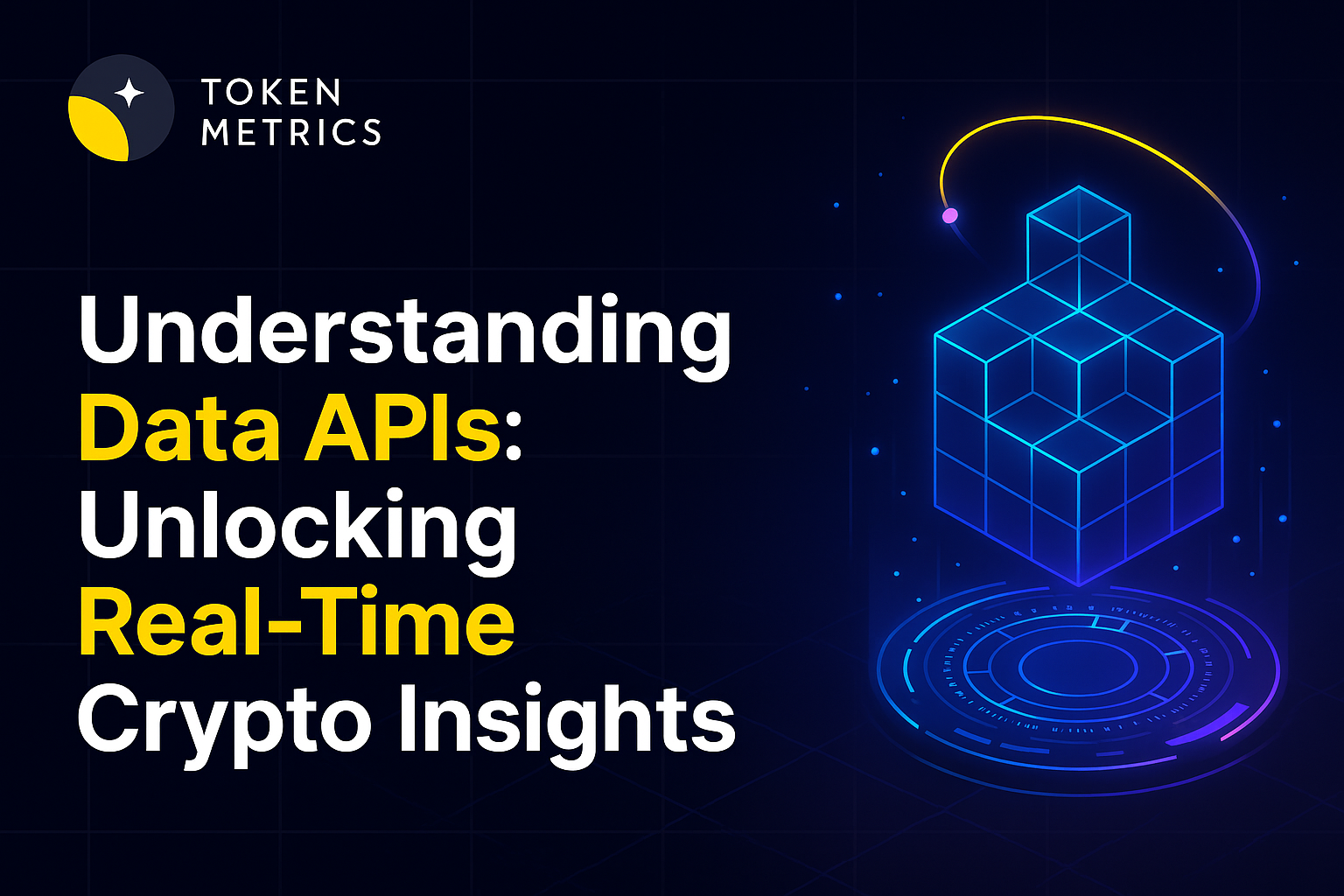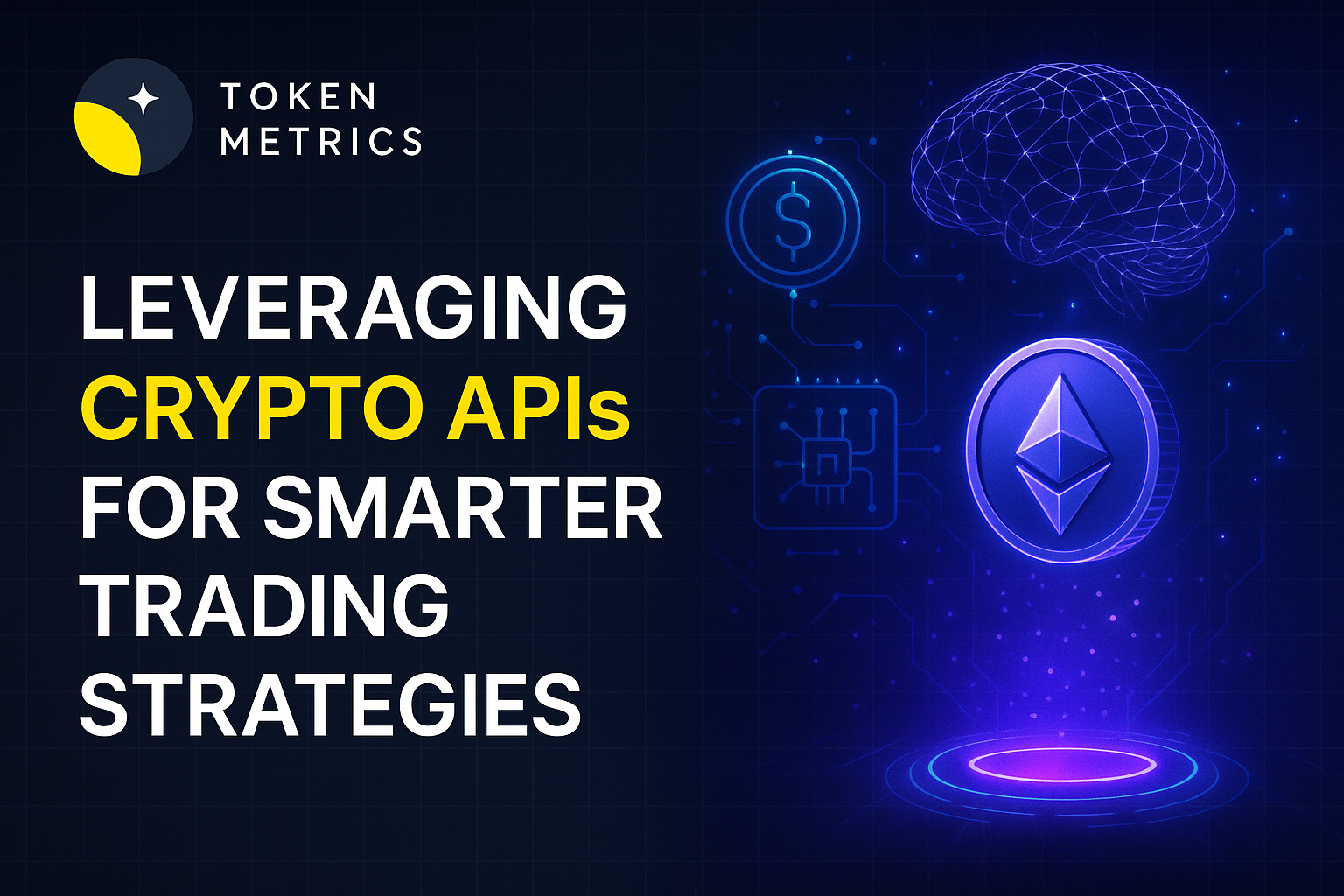
Top Programming Languages for Working with Crypto APIs

As the crypto ecosystem expands, APIs are the bridge connecting developers to real-time prices, blockchain data, and decentralized tools. Choosing the right programming language is critical—whether you're building trading bots, portfolio trackers, or AI research agents for digital assets. How do you select the most effective language for working with crypto APIs? Let's break down the options, trade-offs, and best practices for developers entering this dynamic space.
Python: The Leading Choice for Crypto APIs
Python stands out as the top choice for many developers building crypto-powered applications. Its simple syntax, robust standard libraries, and thriving open-source community have propelled it to the forefront of blockchain and crypto development. Here's why:
- Extensive library support: Powerful packages such as requests, web3.py, and ccxt simplify everything from basic REST calls to advanced blockchain and exchange integrations.
- AI and data science integration: Python's dominance in AI and machine learning (through libraries like TensorFlow and scikit-learn) makes it ideal if you want to combine crypto market data with analytics or modeling.
- Rapid prototyping: Python's readability increases development speed, allowing teams to quickly test new crypto strategies or data queries.
- Strong community and documentation: There are abundant tutorials and prebuilt modules for most major exchanges and blockchains, lowering the entry barrier for newcomers.
Python is especially popular for backend services, trading bots, analytics dashboards, and AI-driven crypto research platforms. Its versatility makes it an excellent starting point for most crypto API projects.
JavaScript and Node.js: For Both Web and Backend
JavaScript's ubiquity in web development—and the rise of Node.js for backend—have cemented its importance in the crypto API landscape. Here's why developers favor JavaScript:
- Full-stack flexibility: With frameworks like React or Vue.js on the frontend, and Node.js on the backend, developers can seamlessly create interactive dApps and dashboards that communicate with blockchain or exchange APIs.
- Real-time capabilities: Libraries like web3.js make it easy to connect web applications directly to Ethereum and other blockchains, powering features like wallet integration and token swaps.
- Growing DeFi ecosystem: Many decentralized finance (DeFi) products and Web3 tools have rich JavaScript or TypeScript SDKs for easy adoption.
- Strong community: JavaScript's vast ecosystem ensures that support is available for integrating most major crypto APIs, whether for simple price data or advanced smart contract interactions.
JavaScript and Node.js are top picks for projects focused on user-facing dashboards, live trading interfaces, and dApp development where real-time interaction is crucial.
Compiled Languages: Go, Java, and C#
For developers who prioritize performance and scalability, compiled languages like Go, Java, and C# come into play:
- Go (Golang): Known for its concurrency support and efficiency, Go is popular for blockchain node clients (e.g., Ethereum's Geth) and high-throughput servers that need to process large amounts of real-time crypto data via APIs. Its static typing helps reduce runtime errors, and its small binaries make deployment easy.
- Java: Java remains a leading choice in enterprise environments where reliability and security are paramount. Java powers several blockchain SDKs (such as BitcoinJ) and is often favored for building robust backend crypto services.
- C#: Particularly useful for Windows-based environments and gaming platforms leveraging blockchain assets. Libraries like NBitcoin enable smooth API integration with Bitcoin and related networks.
While these languages often require more boilerplate and steeper learning curves than Python or JavaScript, they excel in situations where uptime, parallel processing, and performance are vital.
Smart Contract and Blockchain-Specific Languages: Solidity & Rust
When your project needs to interact deeply with blockchain networks beyond just APIs—such as deploying smart contracts or working at the protocol level—specialized languages become essential:
- Solidity: The dominant language for Ethereum smart contracts, Solidity is essential for developers building and querying contracts directly. While typically not used to interact with APIs, it's often complemented by Python (web3.py) or JavaScript (web3.js) scripts that handle API calls and contract interactions together.
- Rust: Fast rising in popularity, Rust powers next-gen blockchains like Solana and Near. Its emphasis on memory safety and concurrency makes it ideal for performance-critical crypto platforms. Rust also supports tooling for building high-speed client libraries and backend services that consume blockchain APIs.
For API-focused projects, these languages play a role primarily when paired with a more general-purpose language (like Python or JavaScript) for off-chain tasks, with the specialized code handling on-chain logic.
Factors to Consider When Choosing a Language for Crypto APIs
The ideal programming language depends on a few project-specific factors:
- Project type: Analytics and research tools often favor Python; user-facing platforms lean towards JavaScript/Node.js; and mission-critical applications may benefit from Go or Java.
- API documentation and libraries: Mature APIs will have client libraries in popular languages. Libraries like Token Metrics API, Binance, or Coinbase typically support Python, JavaScript, and Java.
- Security considerations: Languages with clear type systems and strong error handling (like Rust and Go) may reduce API integration risks.
- Team expertise: Leverage your team’s current language strengths to minimize onboarding time and maximize productivity.
- Ecosystem support: Evaluate how active the language’s crypto developer community is for support and ongoing maintenance of crypto API wrappers or SDKs.
Ultimately, the best crypto API projects balance technical strengths, developer proficiency, and the support network a programming language provides.
Build Smarter Crypto Apps & AI Agents with Token Metrics
Token Metrics provides real-time prices, trading signals, and on-chain insights all from one powerful API. Grab a Free API Key
Is Python better than JavaScript for working with crypto APIs?
Both Python and JavaScript are leading choices. Python excels for backend analytics and AI-driven tools, while JavaScript is often used for building interactive dApps and web interfaces directly leveraging APIs. The right choice often depends on your application requirements and team expertise.
What libraries can help integrate APIs in crypto apps?
Popular libraries include web3.py and ccxt for Python, web3.js and ethers.js for JavaScript, as well as client SDKs provided by leading exchanges and data providers. Token Metrics also offers a powerful API for market data and analytics.
How can I enhance API security in crypto projects?
Use secure API key management, implement rate limiting, utilize HTTPS for data transmission, and validate all external responses. Choosing a strongly-typed language (like Go or Rust) and leveraging well-maintained libraries can reduce vulnerabilities.
Should I learn Solidity or Rust for API development?
Solidity and Rust are best suited for smart contract and protocol-level blockchain work—not direct API integration. For most API-driven crypto projects, Python, JavaScript, or Go are more practical; learn Solidity or Rust if you plan to develop on-chain logic or new blockchain platforms.
How does Token Metrics support developers working with crypto APIs?
Token Metrics delivers AI-driven crypto analytics and signals via a unified API, empowering developers to build research, trading, or analytical tools rapidly. The platform provides robust documentation and versatile endpoints compatible with major programming languages.
Disclaimer
This content is for informational and educational purposes only. It does not constitute investment, financial, or legal advice. Use all programming languages, APIs, and crypto tools at your own risk and always conduct thorough technical due diligence before integrating third-party services or tools into your projects.

.svg)

Create Your Free Token Metrics Account

.png)




%201.svg)
%201.svg)


%201.svg)









.svg)




.png)